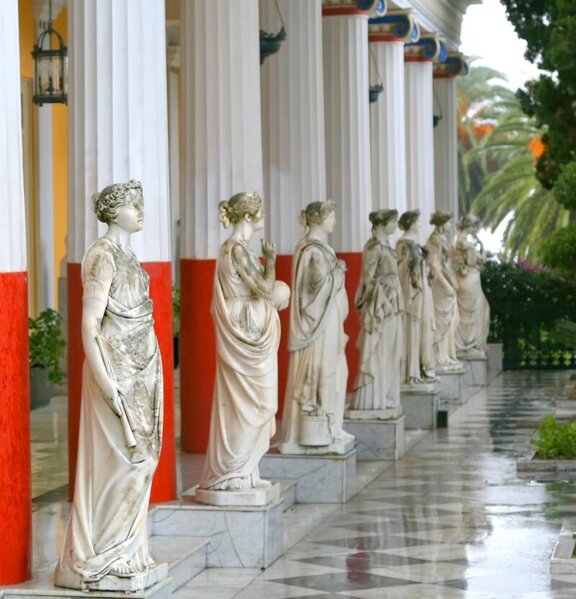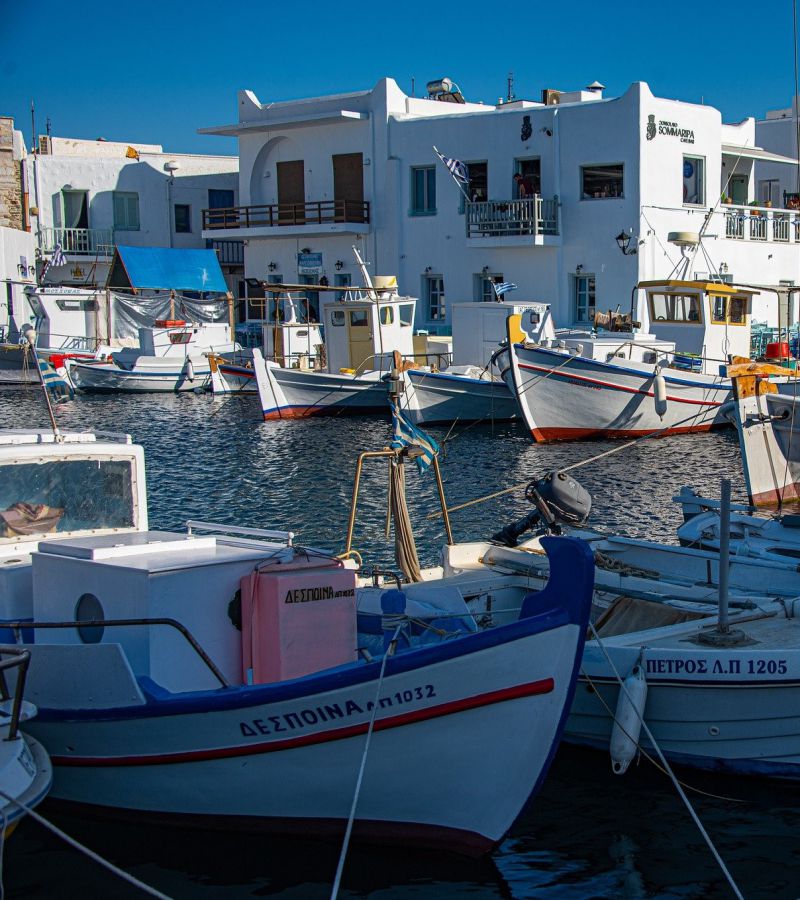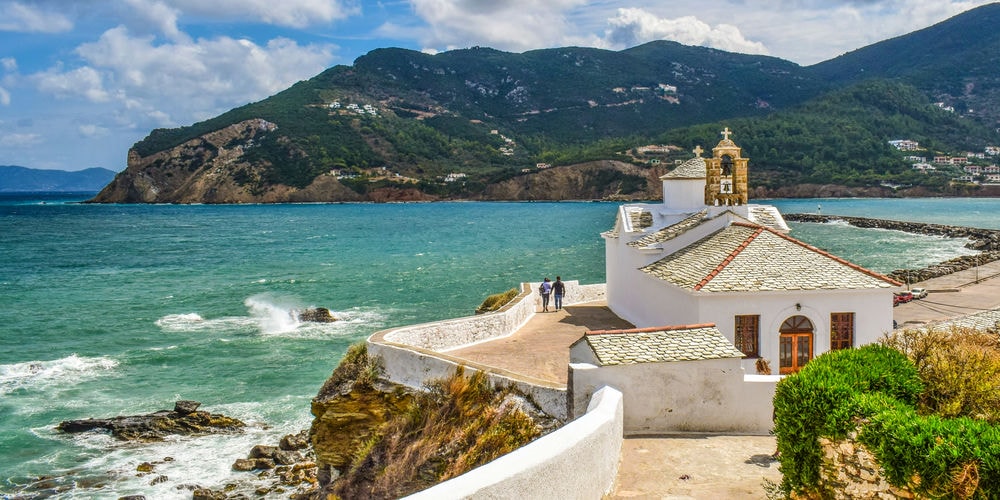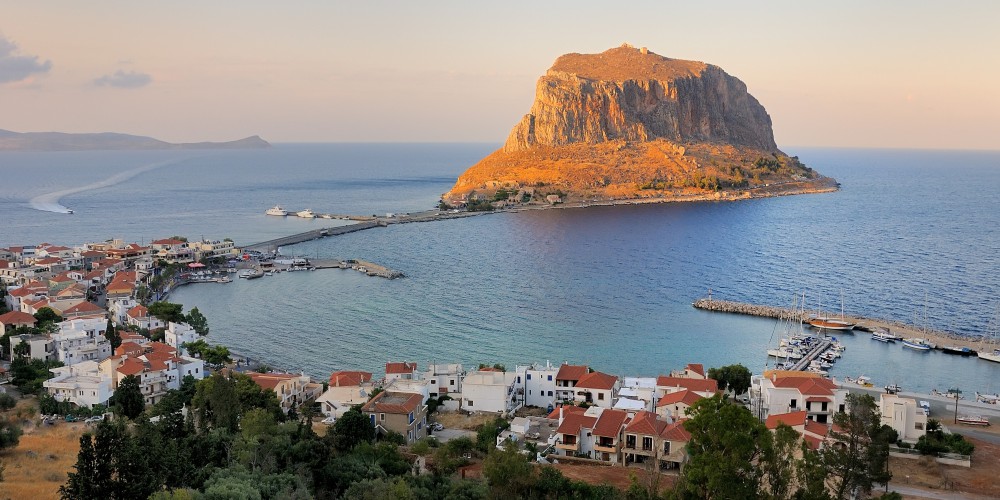
Best Time of Year to Visit Greece
Key Takeaways
- The best weather in Greece is generally between May, June, and mid-September.
- Visiting Greece during the winter months can be cold and rainy.
- The best time to visit Athens is during spring and fall, while August is an exception due to less traffic and fewer people.
- The best time to visit the Greek islands is during the summer season.

Greece, with its ancient monuments, sun-kissed islands, and warm Mediterranean climate, offers a unique experience to travelers seeking both adventure and relaxation.
The best time to visit largely depends on the type of trip you're planning.
Whether you’re seeking idyllic beaches, cultural festivals, or quiet moments amid ancient ruins, planning your trip based on these seasonal trends will enhance your experience.
Understanding Greece's Seasons
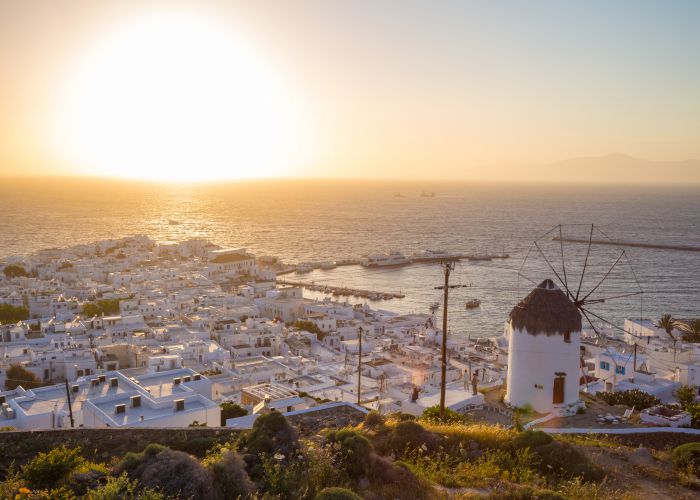
Spring (March-May): This season in Greece sees a gradual shift from the cooler temperatures of winter to the warmth of summer. Travelers can expect a pleasant mix with occasional rain, especially in early spring.
- March: Often sees variable weather, with a mix of rain and sunny days.
- April: Flowers bloom, and temperatures become milder, with less rainfall.
- May: Marks the beginning of warm weather, ideal for outdoor activities without the intense heat of summer.
Summer (June - August): Summer is characterized by very hot weather and dry conditions, perfect for beach-goers. The heat can peak in July and August, often surpassing 30°C (86°F).
- June: Warm and sunny, with the least humidity of the summer months.
- July - August: Expect high temperatures and very little rain. These are also the busiest months for tourism.
| Month | Average High Temp. | Average Rainfall |
|---|---|---|
| June | 30°C (86°F) | 10 mm (0.4 inches) |
| July | 33°C (91°F) | 6 mm (0.23 inches) |
| August | 33°C (91°F) | 6 mm (0.23 inches) |
Fall (September - November): The heat begins to recede, and the weather remains warm, making it comfortable for exploring and enjoying the outdoors. Rainfall increases towards the end of the season.
- September - October: Still suitable for swimming and sunbathing, with fewer crowds.
- November: Cooler, with greater chances of precipitation, signaling the approach of winter.
Winter (December - February): Winter months are generally mild but can be rainy, particularly on the mainland. Mountainous areas may experience snowfall.
- December - February: Cooler weather dominates, and some islands and tourist facilities may be closed. However, it's a good time for cultural exploration without the tourist crowds.
In summary, travelers looking for warm weather and outdoor activities should target late spring to early fall.
At the same time, those seeking fewer tourists and milder climates may consider late fall or even winter, keeping in mind the potential for rain and the closing of some tourist amenities.
High Season: June to September
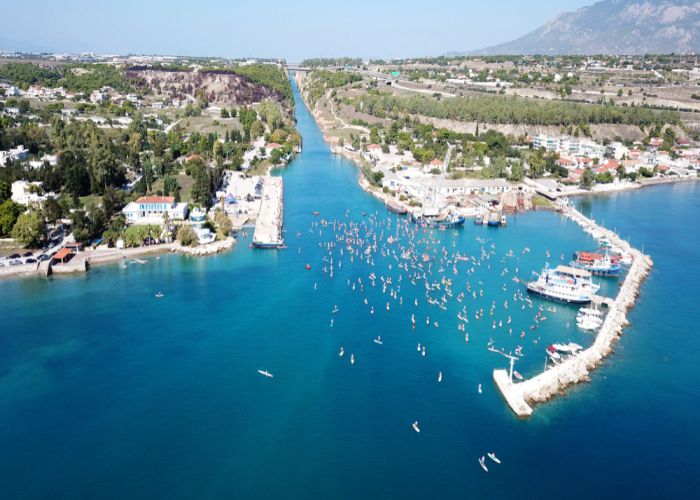
The period from June to September marks the high season for tourism in Greece, offering the best beach conditions and a vibrant atmosphere, albeit with increased prices and tourist numbers.
Advantages of Visiting During the High Season
- Weather: The Greek islands bask in perfect beach weather during these months, with clear skies and warm temperatures. This is especially true for popular islands like Santorini and Mykonos.
- Festivities and Events: The summer brings numerous events and festivals. Notably, music festivals are common, drawing in crowds with live performances set against the stunning backdrops of the islands.
- Beach Experience: Beaches, a central attraction, are at their best. The summer waters are warm, ideal for swimming and water sports.
Disadvantages of the High Season
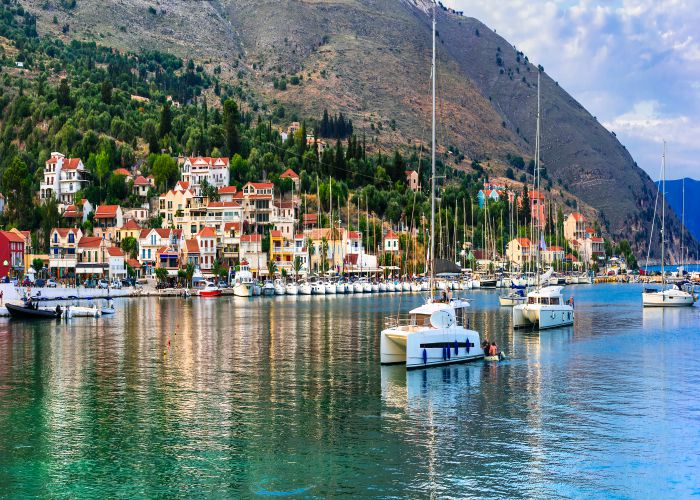
- Crowds: Peak season in July and August leads to crowded beaches and localities. Islands like Mykonos and Santorini experience significant tourist influxes.
- Prices: Hotel and accommodation prices surge. Planning ahead is crucial as demand can lead to high prices and limited availability.
- Meltemia Winds: The Meltemia, a seasonal northern wind, can sometimes make conditions on certain beaches and the sea rougher, particularly in late summer.
Specific Events and Festivals to Consider

- Orthodox Easter: Occurring in April or May, it sometimes falls close to June, casting an early start to the festive mood with traditional celebrations.
- Summer Music Festivals: Various islands and the Greek mainland host music events, offering an opportunity to enjoy live entertainment alongside holiday leisure.
- Festivals like Santorini's International Music Festival in September provide cultural experiences unique to the high season.
Shoulder Seasons: April to June and September to October

The shoulder season in Greece offers a balance of pleasant weather and fewer tourists, making April to June and September to October ideal for travelers seeking both comfort and an authentic experience.
The Allure of Visiting Greece During the Shoulder Seasons
During the shoulder seasons, visitors relish milder temperatures, manageable tourist traffic, and generally lower prices for flights and accommodation.
In spring, one can witness Greece awakening from winter, particularly after Orthodox Easter, as the countryside blooms and the social calendar fills with celebrations and festivals.
- April: Wildflowers and Greek Orthodox Easter festivities, especially during the holy week
- May: Excellent sightseeing conditions, warming seas in places like Crete or the Aegean islands
- June: Start of warm beach weather, before the summer rush
Fall sees Greece harvesting olives and grapes, making September and October prime for experiencing the country's rich agrarian traditions and harvest festivals, especially in rural areas.
- September: Warm, less crowded beaches, vineyard tours
- October: Crisp air, culinary festivals, the last of the beach days on islands like Rhodes or the Ionian
Highlighting the Best Activities in These Months
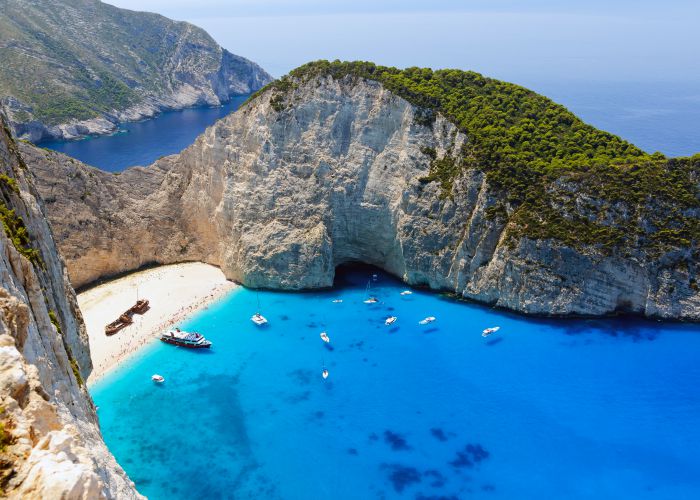
These months are optimal for various activities that showcase Greece's diverse offerings. From exploring ancient ruins to leisurely island-hopping, options abound.
- Sightseeing: Explore Athens and Thessaloniki without the peak season's intense heat.
- Beaches: Take advantage of the relatively warm sea temperatures for swimming.
- Nature: Hiking and outdoor activities are at their best with the comfortable weather.
Regional Differences in the Shoulder Season Experience
It's important to recognize the regional nuances of Greece's shoulder season. While the mainland, including cities like Thessaloniki, offers cultural and outdoor activities, the islands have a different allure.
- Aegean Islands (e.g., Crete, Rhodes): The sea remains warm enough for swimming through late October.
- Ionian Islands: Lush landscapes and crystal-clear waters make for an idyllic fall retreat.
Low Season: November to March
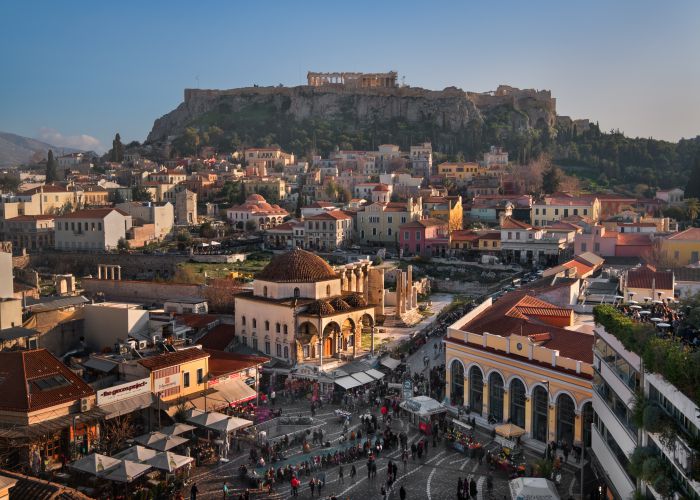
During the low season in Greece, which spans from November to March, travelers can experience a quieter, more authentic side of the country.
It is traditionally marked by cooler temperatures and a likelihood of rain. While this period may be termed as winter, Greece's Mediterranean climate ensures that the cold is milder compared to more northern destinations.
In December, the festive spirit is palpable with the celebrations of Christmas and New Year.
January and February can bring colder weather, with the possibility of snow in the mountainous regions.
These months are ideal for those interested in cultural experiences like the Patras Carnival, one of Europe's largest and most vibrant events. It usually takes place in late February or early March.
As March arrives, the temperatures begin to rise slightly, and the days grow longer, hinting at the approaching spring.
| Month | Weather | Cultural Events | Travel Considerations |
|---|---|---|---|
| November | Cooler, rainy | - | Fewer tourists, lower prices |
| December | Chilly, festive | Christmas, New Year Celebrations | Visiting cultural sites without crowds |
| January | Cold, potential snow | Epiphany celebrations | Economical travel costs |
| February | Cold, likely rain | Patras Carnival | Cultural immersion, authentic experience |
| March | Mildly warmer, more daylight hours | - | Beginning of shoulder season, still budget-friendly |
Visitors who choose this time to visit Greece should prepare for variable weather conditions. They should also check in advance for the opening hours of attractions, as some might have reduced operations or be closed for the season.
However, those who do visit will find a more tranquil Greece waiting to be explored.
Best Time for Island Hopping

The prime seasons for island hopping in Greece are the shoulder seasons of spring and autumn.
Specifically, the months from April to May and September to early October offer the best balance of pleasant weather, fewer crowds, and reasonable prices.
During these months, visitors can enjoy the mild and sunny climate of the Aegean Sea.
Temperatures typically range from 17-23°C, creating an ideal environment for ferry rides between islands and outdoor activities.
These activities include exploring historical and archeological sites or enjoying Greek beaches.
In contrast, summer, particularly August, sees the islands at their busiest.
The influx of tourists leads to crowded attractions and can result in higher prices for flights and accommodation.
Despite the allure of the summer sun, the benefits of traveling during the less busy times cannot be overstressed.
Lastly, during the shoulder seasons, visitors find better deals on flights and accommodation as demand is lower.
The islands retain their charm without the summer's overwhelming influx of visitors, making it easier to engage with locals and culture.
In summary:
- Shoulder Seasons: April-May & September-October
- Average Temperature: Mild, 17-23°C
- Advantages: Fewer crowds, better prices, pleasant weather
- Summer: Busy, especially in August, with higher prices and heat
For those seeking a balance of good weather, value, and tranquil experiences, the shoulder months are recommended for island hopping in the Greek archipelago.
Best Time for Budget Travelers

Budget-conscious travelers should consider visiting Greece during the shoulder seasons, which encompass spring (April to early June) and fall (late September to October).
These periods offer a balanced experience with mild weather and fewer tourists, which translates into more affordable accommodation and flight options.
- Accommodation: Hotel prices tend to be lower in these months. Travelers can look for discounted rates as hotels are not as booked up as during peak summer months.
- Airfare: Flights also tend to be cheaper during shoulder seasons. Travelers can monitor prices and book in advance to secure the best deals.
- Planning: Thorough planning can further reduce costs. Staying informed about local deals and discounts, particularly in less touristy areas, can maximize savings.
| Season | Potential Savings |
|---|---|
| Shoulder (Spring/Fall) | Up to 20-30% on hotels and flights |
| Off-Peak (Winter) | 30-50% on accommodations; variable on flights |
Budget travelers should note that while winter offers the lowest prices, some tourist services may be limited.
For the optimal mix of affordable travel and pleasant weather, shoulder seasons are typically the most advisable times to visit Greece.
Best Time for Avoiding Crowds

Travelers seeking tranquility and a more authentic experience in Greece should consider visiting during the shoulder seasons—periods before and after peak tourist times.
Late September through October and April through early June are ideal; these months offer pleasant weather and fewer tourists.
Shoulder Seasons:
- Spring: April - Early June
- Autumn: Late September - October
One will enjoy a serene atmosphere on the beaches, which are less populated compared to the bustling summer months.
The Greek islands and mainland cities alike tend to be quieter, providing ample opportunity to explore without the pressure of jostling with crowds.
During the low season, from November to March, visitors will find the least number of tourists.
However, this period can come with drawbacks such as cooler temperatures and less frequent services.
It’s worth noting that some businesses may close during this time, especially on the islands.
Off-Peak Travel Advantages:
- Tranquil beaches
- Shorter lines at attractions
- More interaction with locals
- Advantageous accommodation rates
For travelers prioritizing a crowd-free experience, visiting Greece during these suggested times will likely yield a more personal and relaxed journey.
It's also an opportune moment to immerse in the local culture and enjoy a little taste of the renowned Greek hospitality with fewer distractions and more genuine interactions.
Month-By-Month Guide to Visiting Greece

January & February: The winter months bring cooler temperatures to mainland cities like Athens and Thessaloniki. These months are ideal for those who prefer fewer tourists and don't mind the occasional rainfall.
March: With the arrival of spring, days in Greece become warmer.
Sightseeing in historical sites without the heat is more comfortable, though sea temperatures remain chilly for beach time.
April: The beauty of Greek landscapes is highlighted with mild weather and blooming nature.
It's a prelude to the beach season, but still quiet on the Cretan beaches and other coastal areas.
May: May marks the beginning of excellent weather conditions, with warm days suitable for beach visits and sightseeing.
The islands and coastal regions start to see more visitors.
June: Kicking off the summer, June sees hotter average temperatures, perfect for enjoying the beaches.
Greece, especially the islands, becomes vibrant with activities but isn't as crowded as in peak summer months.
July & August: These are the hottest months, with temperatures soaring, perfect for dedicated beach-goers. However, expect bustling crowds and peak prices.
September & October: Early fall brings warm, pleasant weather with fewer tourists, allowing visitors to enjoy the beauty of Greece comfortably.
Water temperatures remain conducive to swimming.
November & December: Autumn transitions into cooler and rainier days as winter approaches. While not ideal for typical beach holidays, these months offer a quieter experience of Greece's cultural offerings.
Final Thoughts
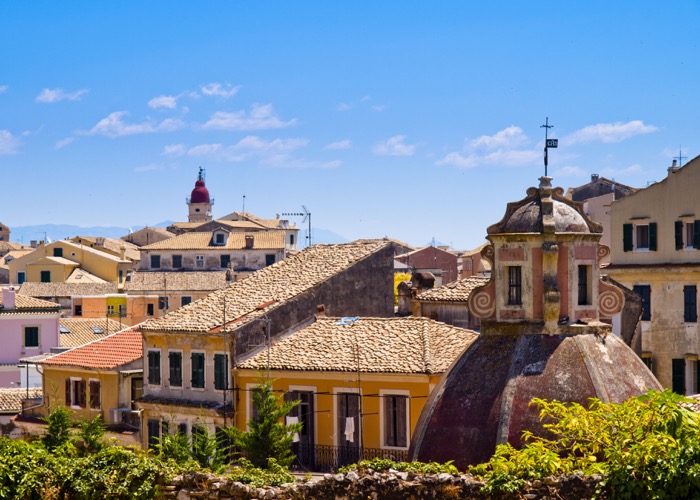
All in all visiting Greece is sure to blow you away with how beautiful and inviting it still looks, regardless of the time you decide to visit it.
What's more, the beaches, intense nightlife, incredible weather, natural beauty, and fantastic historical monuments keep tourists returning for more.
So don't hesitate to take our travel advice and rush to Greece with one of our Greece vacation packages.
You can be sure that people will greet you warmly wherever you go either by renting a car in Greece and driving around or by trusting the hands of expert locals to do the dirty work for you.
Are you ready for the Greek holidays of a lifetime? The best time of year to visit Greece is whenever you feel like it!





